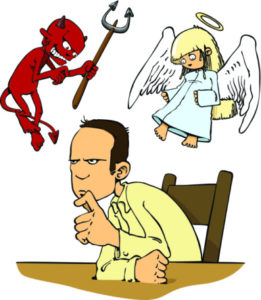5 Tips ForDealing with Paranoia in a Relationship
Dealing with Paranoia in a Relationship
Do you ever think your partner is ‘paranoid?’ When your partner accuses you of something that feels so off the wall, do you silently wonder whether your partner is no longer in the real world? If so then dealing with paranoia in a relationship becomes a significant challenge for you.
In any couples counseling session, it’s common to hear phrases like “he’s paranoid!” or “she’s paranoid! Often a client who attends individual counseling complains about their relationship, talking with exasperation their ‘paranoid’ partner.
What it’s Like Dealing With Paranoia in a Relationship?
- Your partner accuses you of having negative intentions towards them that feel alien to you
- Dealing with paranoia within a relationship makes you feel that your words and actions have been completely twisted and interpreted in ways that you couldn’t imagine.
- Your questions are viewed as having ulterior motives
- Dealing with paranoia in a relationship involves being accused of being a liar.
- You feel as if you have been set up to act in just the horrible way your partner has accused you of.
- Your partner regards you as going out of your way to humiliate and embarrass them
- You receive hostile reactions to your helpful acts with accusations of being disingenuous.
- If you’re texting and on the phone in good faith, your partner may insist that you are lying, perhaps cheating and blowing it off.
- Dealing with paranoia in a relationship involves you being charged with conspiring against your partner and attempting to smear them
- At times you feel that everything you do or say is blackened to make you feel like a monster towards a helpless other.
- You feel utterly mistrusted.
- Your partner mistrusts you even more if you bring back memories of better times
- Dealing with paranoia in a relationship makes you feel in a parallel universe, with no common language, frustrated and often hopeless that you will ever connect again.
- You can’t reason with your partner
- Whatever way you try to prove your innocence and good intentions the worse their paranoia becomes.
- You become an object of fear and harm in your most intimate relationships
Dealing with Paranoia in a Relationship – being characterized as a monster
It’s understandable that you are upset at being characterized in this monstrous way that upends your sense of self. You probably distance yourself from your partner as a way of dealing with paranoia in the relationship. Perhaps you feel alone, fearful of being further accused of more serious but inaccurate things. So you may talk about it with family or close friends – which only serves to ‘prove’ to your partner that you are engaged in a smear campaign against them, reinforcing their mistrust of you.
Dealing with paranoia in a relationship results in you picking up some of the paranoia too
When you are worried about being painted in an utterly inaccurate way, it’s natural that you would want to protect yourself from the danger that your partner poses. Perceiving your partner as risky to be around makes them the object of fear. Now you are the one fearing their intent and power to smear you, turn your life upside down and throw you into an abyss of chaos.
Dealing with paranoia in a relationship – managing the web of fear
Your partner starts off being afraid of you (inaccurately) wanting to harm them. Then you become afraid that their faulty beliefs could bring harm to you. So you are both caught in a web of fear that gets whipped up into a frenzy with every attempt you make to bring facts and reality to the table.
Dealing With Paranoia in a Relationship
- Understand your partner’s paranoia
When your partner goes into a paranoid state it means he or she is overwhelmed with fear that is triggered by some significant misattunement between you that shakes the foundation of their security. For example if you don’t respond to an affectionate embrace at one point in time, your partner’s brain experiences a cascade of all other times they have been rebuffed; those memories are alive and kicking in; damaging the sense of safety and security that would otherwise maintain the bonds of the relationship. Your partner is thrown into an internal world of danger. You become the immediate danger and so the paranoia goes into full swing. Of course your partner’s history of being rejected and rebuffed by loved ones is the defining feature. In the moment when your partner sees you as the danger, you become the embodiment of all previous inadequate care givers.
Dealing With Paranoia in a Relationship
- Do not attempt to take their fear away or distort it from their perspective.
Attempts to calm them or pretend everything is okay comes off as you trying to fool them into thinking things are safe when they are flooded with stress hormones that tell their brains they are in acute danger. Instead simply acknowledge their fearful state and show them that you aren’t spooked. Speak to the fear so that they get a sense that you are with them rather than scheming or pretending to be nice – only to manipulate them when they put their guard down.
By recognizing their terror and speaking to it you make it more likely that they gradually see you as friend rather than foe and trust you again.
Dealing With Paranoia in a Relationship
- Avoid Trying to Force Reality on your partner
When your partner drowning in fear, the parts of the brain that use logic and reason are off line. So you simply increase the fear if you try and prove them wrong. In fact you come off as more dangerous trying to control them. So the best thing to do is to acknowledge their fear and just hear them out. That’s the only way of proving that you are not in fact out to get them, but instead take their terror seriously.
It’s hard when you are treated as a monster, but remember that your partner is not in touch with reality when they are in a paranoid state, so it’s not personal to you. Everything around your partner appears suspicious and threatening.
Dealing with Paranoia in a Relationship
Don’t attack back. Let your partner get rid of all the scary stuff inside.
- Faced with a partner in the throes of relationship paranoia it’s understandable that you too would go into protect mode and sieve out good memories of togetherness. Those positive but real memories dilute your will to armor up.
WELL – the same thing is happening for your partner, ensnared in fear and in full defense mode. The only difference is your partner may be using the term ‘attack is the best form of defense.’
- Remember that both of you are in a state of fear
- You are likely to have a little bit more perspective on the interaction because your journey to fear and protect was a reaction to your partner’s triggered terror that you played a cameo part in.
- When you identify with your partner’s fear then you have completed the main task of managing relationship paranoia
Dealing With Paranoia in a Relationship
Connect Through The Common Fear to Reduce Threat and Foster Safety
- When the paranoia subsides (you’ll know when you become less fearful and stressed) that’s the time when you gently make connections by recalling the good times – because now you are both safe enough to relive those memories as comforting rather than threatening. You feel more anchored and your sense of self returns in a familiar way. Use that to foster trusting bonds over time, and reduce the frequency of paranoid bouts.
Copyright, Jeanette Raymond, Ph.D. 2018
You may also like:
Thick Skinned Narcissists Cover Feeling of Inadequacy
How to deal with spiteful actions against you
Building trust and intimacy in relationships





